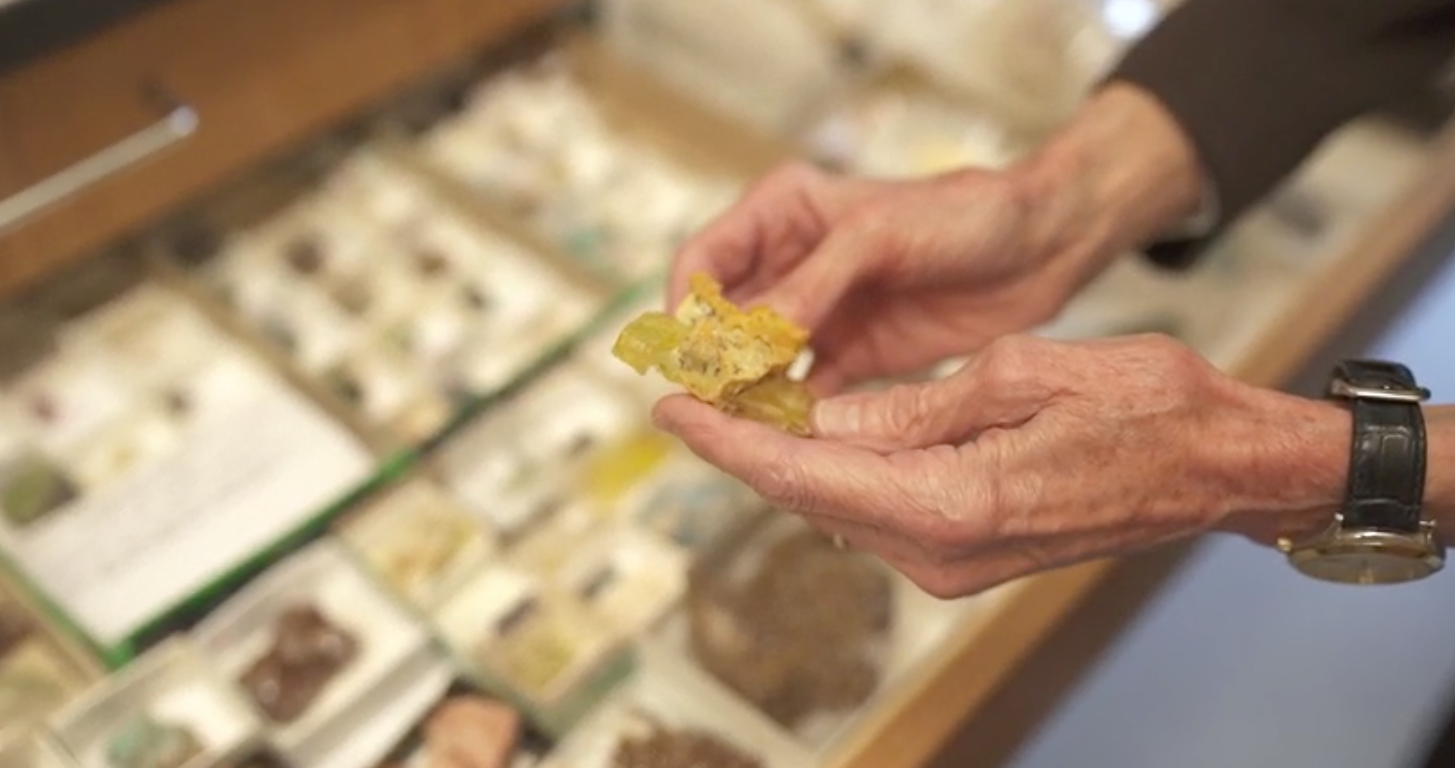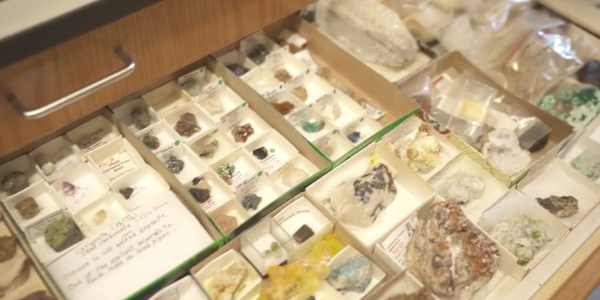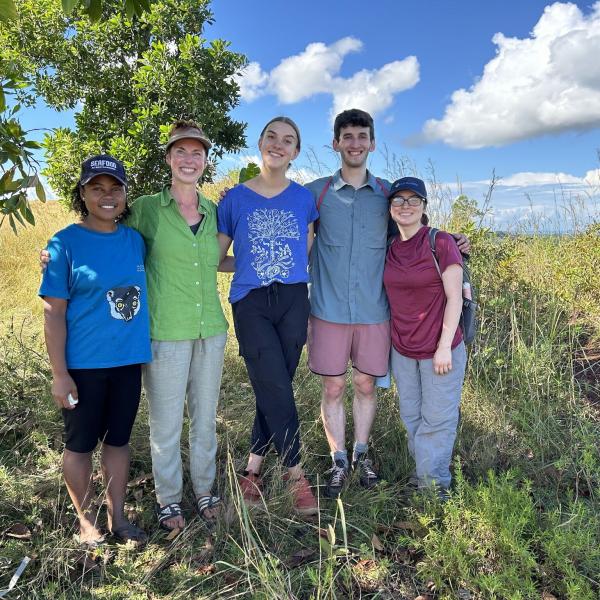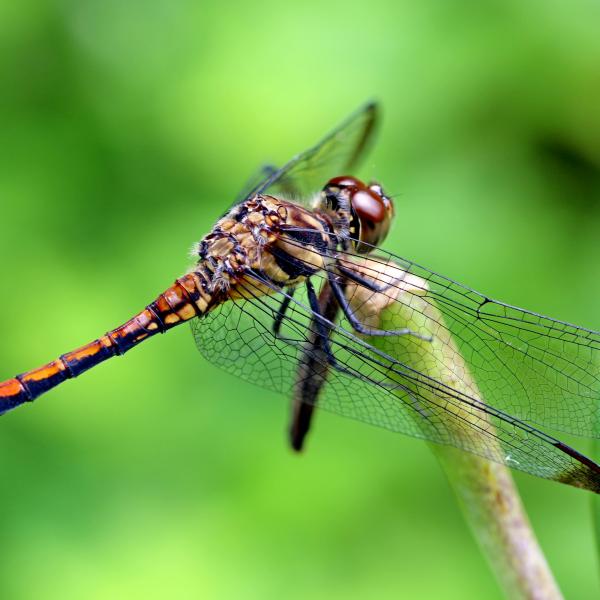In this Q&A, Jill Pasteris revisits some of her favorite memories and milestones from her impressive career.
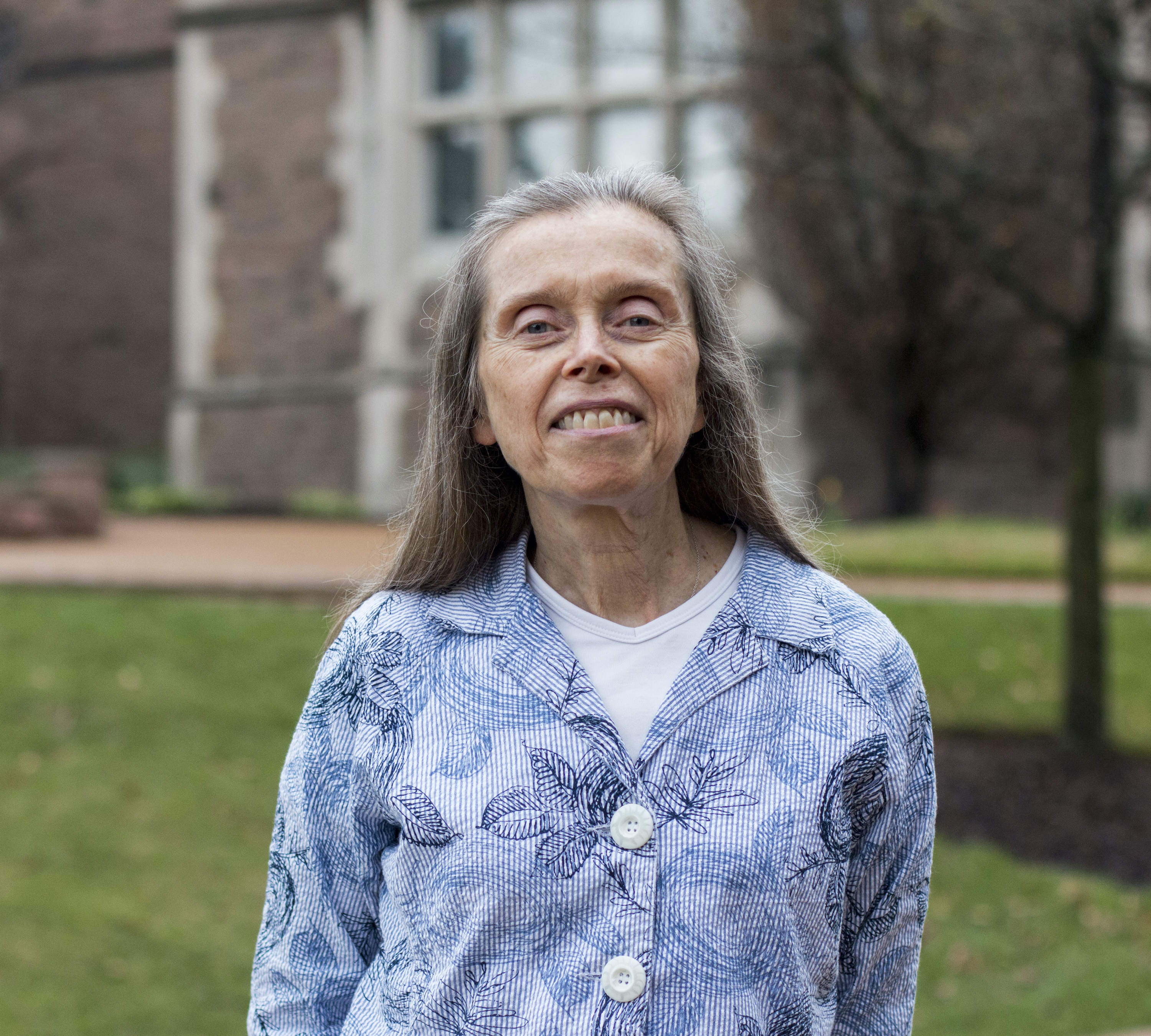
Jill Pasteris, now professor emerita, started teaching in the Department of Earth and Planetary Sciences at Washington University in January 1980. Though a lot has changed over the course of her 41-year tenure, including bold new research facilities and teaching technologies, Pasteris's love of minerals and her enjoyment in sharing mineralogy with her students has remained steadfast.
How have things changed since you first began at WashU?
When I started teaching in 1980, the Department of Earth and Planetary Sciences was housed in the comfortable but unrenovated Wilson Hall. It was a much smaller department then, not only fewer faculty but also many fewer non-faculty research scientists, postdocs, and technical staff than we have now. Somehow the graduate students did not seem so young to me in those days – probably because I was only a few years older than they were!
What's one class you particularly enjoyed teaching?
Over the years, I taught a number of different classes, including petrology, economic geology, resources of the earth, mineralogy, environmental mineralogy, optical mineralogy, and history of ideas and controversies in the geosciences. My favorite courses were those introducing mineralogy, especially Earth Materials, the last course I taught. I have loved minerals since I was a young child, and, in teaching an introductory course in mineralogy every fall, I had a chance to relive the amazement I first found in minerals. It was gratifying to see how many students became more interested in minerals as the course progressed. I also had the opportunity to share some of the ways I had discovered over the years to better understand important concepts that had greatly challenged me as a young student.
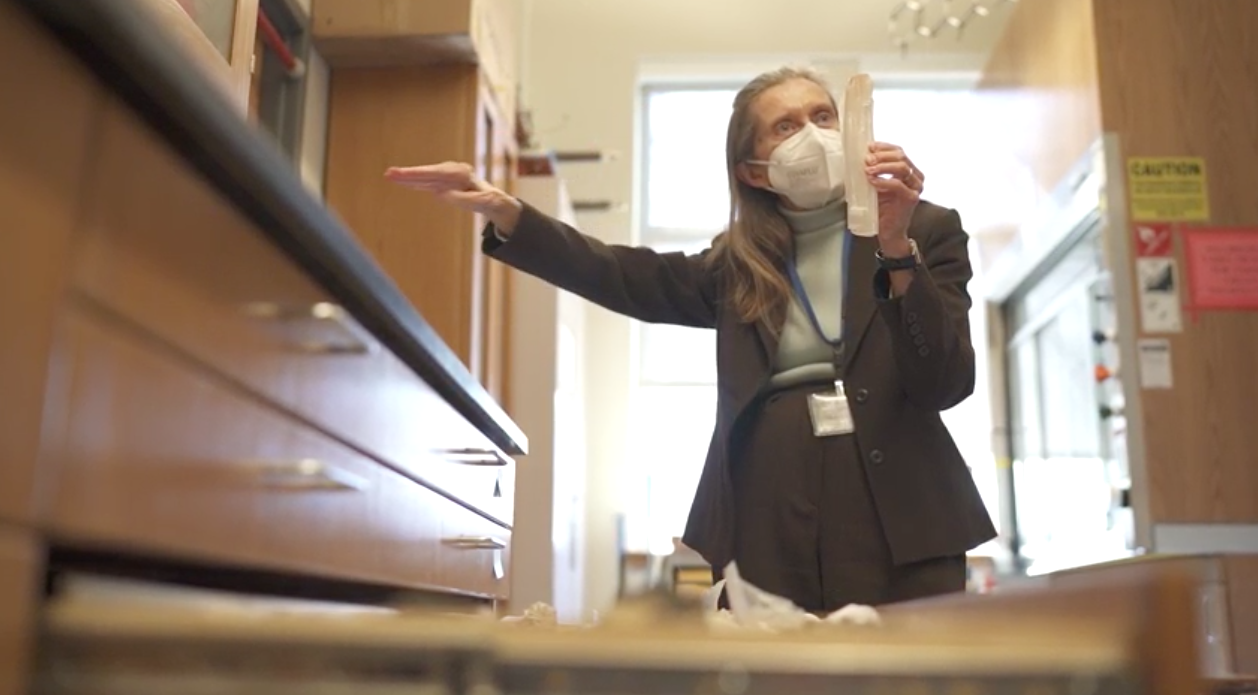
What moment from your career stands out as particularly impactful?
I had only been at WashU for a few years when I decided to embark in a research direction that was new for my field, that is, the application of Raman microprobe spectroscopy to geological materials. For that work I needed a Raman microprobe, a very expensive instrument in its day. I was invited to talk to Dean Ralph Morrow about getting grant-matching funds for this purchase. He questioned me very respectfully about how the instrument worked and what it could accomplish, and he even apologized for his lack of a strong science background. The McDonnell Center for the Space Sciences was another possible source of funding, which led me to speak with its director, Robert Walker. He wisely, but also respectfully, cautioned me about how much time and effort it would take to set up the entirely new facility I planned. I was blown away when those two sources of funding, and later three others, came through and allowed me to purchase the instrument that changed the course of my research career. In later years, I often thought how lucky I was that neither Dean Morrow, nor Dr. Walker, nor I realized how naïve I was at the time! It was a true act of faith on their part, and I will be forever grateful for the opportunities that line of research brought to me, my colleagues, and my students.
What are your thoughts about closing out your career during a global pandemic?
Fortunately, I didn't teach last spring. The fall 2020 semester, my last one teaching, was a big enough challenge, even with the benefit of other people's experiences. I was glad that my Earth Materials class was unusually small, that all the students were willing to take the course in person, and that I had an excellent assistant in instruction. We all survived and even had some fun times. Before the fall semester began, however, I admit that my first thought had been, "Why didn't you retire a year earlier?!"
Now that you've completed that unusual teaching experience, what are you looking forward to in retirement?
I'm not sure yet. First, I'm looking forward to more time to reflect on the specifics of what I want to do in retirement. There are various ways in which I could serve my church and my community; I would like to try out some of them – after more of us have gotten the vaccine. Right now, I enjoy doing a lot more reading. I also still have much cleaning out to do in my office and lab rooms. It is amazing how much data, rock samples, and equipment a geologist gathers in 41 years!
Do you have any parting words for your students, who will surely miss you greatly?
Most students probably realize they have been changed in various ways by the classes they have taken. I want my students to know that they have changed me, too, and I thank them for it.
